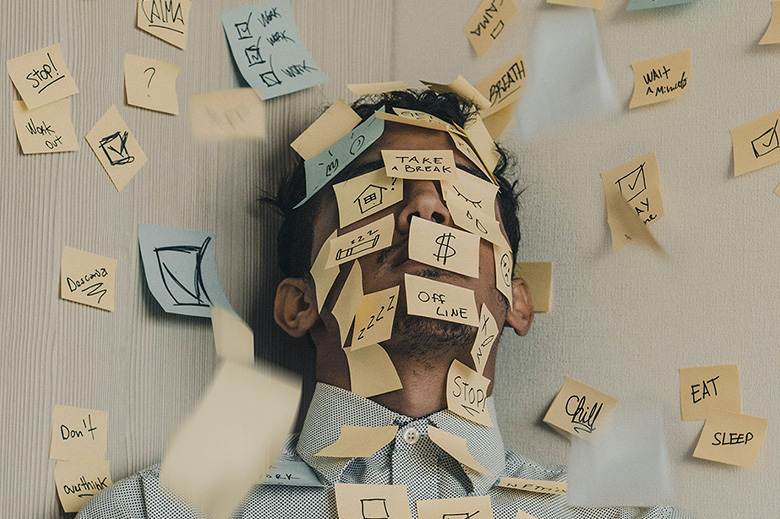Practice These Habits to Improve Your Career.

by Kathy Seaton
Work burnout is real and concerning. The juggling act of hybrid work is difficult because some of us are more efficient working from home, while others are more focused at the office. Balancing productivity is a challenge and many of us are experiencing stress, burnout, and mental fatigue, all of which impact career satisfaction and growth.
Thankfully, we can develop a set of practices to help alleviate the triggers that hold us back. The primary goal of developing new work habits is to become resilient, which is the ability to navigate setbacks, challenges, and failures to bounce back quickly. Resilience can help you persevere during tough times and prove that you can adapt and flex when necessary.
Here are some strategies that you can employ:
Set boundaries to create a balance. Establishing boundaries will help you make decisions to determine what you can manage and to learn how to say no and prioritize. Being the “yes” person will distract you from the work that needs to get done. In addition, boundaries will help you make time for yourself outside of work. It will quiet your mind when it’s time to relax. Self-care is important and should be incorporated into your daily and weekend routine so you can return to work on Monday rested, energized, confident, and ready to tackle the week.
Manage your time wisely. As our to-do lists grow, so does our anxiety. Organization is key here, as well as understanding what projects are meaningful and important. For large projects, break them down into smaller and more manageable tasks. For the day-to-day things that need to be accomplished, make a list and schedule time for completion so that you can get them off your plate. Doing one thing at a time is king and will remove worry and angst.
Ask for help and collaborate. It’s ok to ask for help so that you’re not constantly practicing a sink-or-swim mentality. Asking for help doesn’t show weakness, it shows strength. Recognize that you are surrounded by brilliant people that are willing to collaborate and jump in to help. Develop positive relationships with colleagues and supervisors and foster a culture of teamwork; because your colleagues also are stressed and need support too. A “we” mentality helps us all.
Take a break. Stepping away from your workspace is crucial and will help you remain levelheaded. Take a walk, have a bite to eat, stretch, meditate; whatever it takes to bring you back to center and keep you calm.
Reflect. Daily self-reflection will allow you to modulate your behavior, work well with others, and align your actions with your professional goals. By taking inventory of your day, you can evaluate where you might have created unnecessary stress and develop the self-awareness necessary to understand where you can do better and how to get yourself back on the right track. Remember, reflection increases your value, not only for yourself, but for your team. If you’re not in a good headspace, that can spill over to your teammates.
Strive for progress, not perfection. Perfectionism and the drive to reach that level of performance is dangerous. When things go wrong, and they will, that sense of perfectionism will tear you down and wreak havoc on your soul. Be mindful when you set goals and give yourself some grace if the outcome isn’t what you expected.
Preventing burnout and reducing stress triggers is an iterative process. The habits you practice today may not work for you tomorrow. Experimentation is what will help grow as you come to better understand yourself and your motivations. Be mindful of your attitudes toward work and your personal well-being. Try to recognize the signs of stress early on so that you can use the tools in your toolbox to reassess and set a new course.
Life is a journey, and it is always in session. Stress and deadlines will always be in play. Learning constructive and healthy habits will help you perform better and be much happier in your job.
